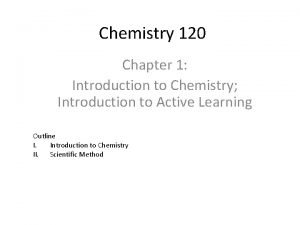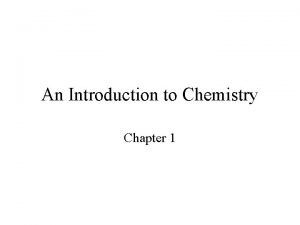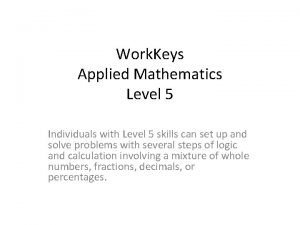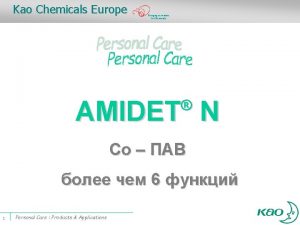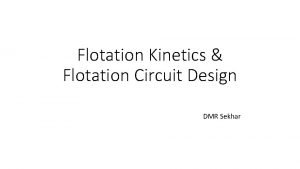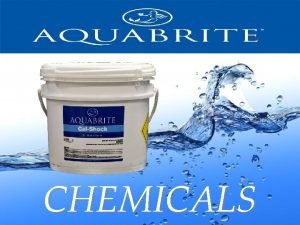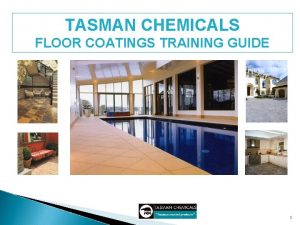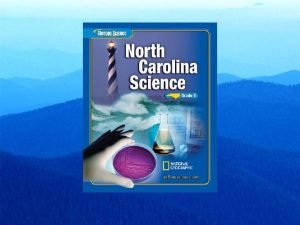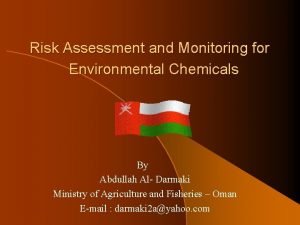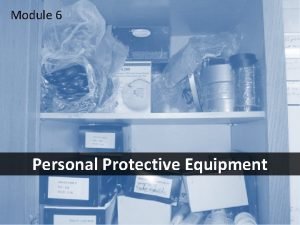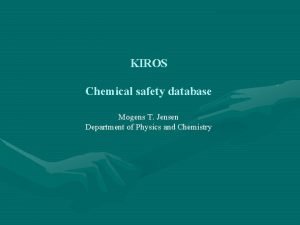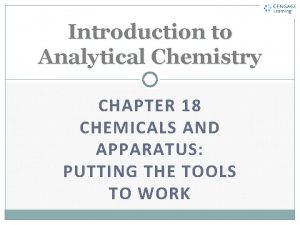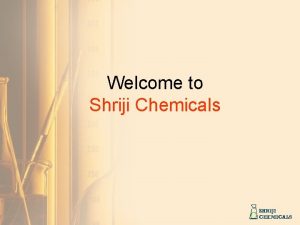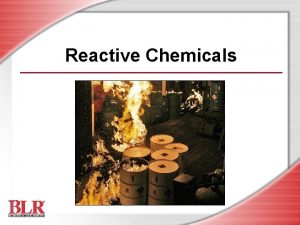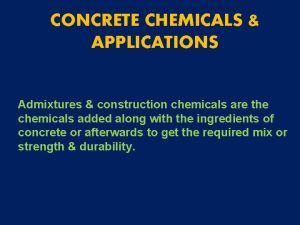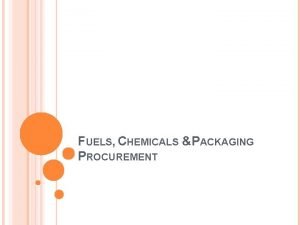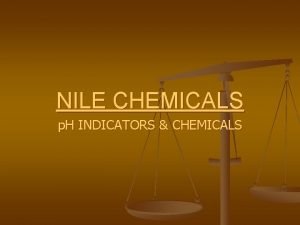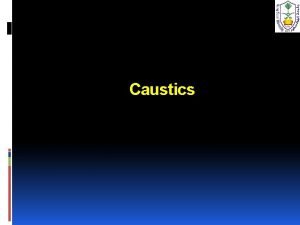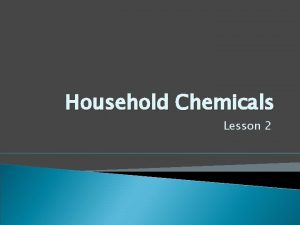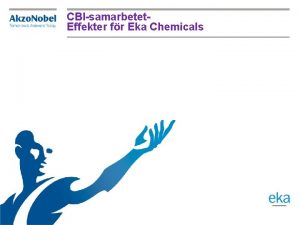An Introduction to Chemistry Chapter 1 Chemicals What

















- Slides: 17

An Introduction to Chemistry Chapter 1

Chemicals • What are they? ? • There is nothing you can touch or hold that is not made of chemicals.

What is Chemistry? • Chemistry is the science of the properties, composition, and behavior of materials. • Chemistry is the science concerned with describing and explaining the different forms of matter and the chemical reactions of matter.

Branches of Chemistry • Applied Chemistry - the search for and isolation of useful materials. • Theoretical Chemistry - Provides a chemical view of nature and explanations of natural processes. – Organic Chemistry – Inorganic Chemistry – Biochemistry – Physical Chemistry

Chemistry is the Central Science

Thinking like a Chemist What do you see?

Thinking like a Chemist What does a chemist see?

Studying Chemistry • Be curious • Learn vocabulary (and nomenclature) • Keep current in the class. Don’t wait for a test • Form a study group • Do problems again and again!!

Scientific Method • Observation – a statement that accurately describes something we see, hear, taste, feel, or smell. • Conclusion – a statement that is based on what we think about a series of observations.

From Scientific Method • Empirical facts – (observations, data) • Scientific laws – (tested generalizations, consistent observations) • Hypothesis – (tentative explanation) • Theory or Models – (tested explanation, unifying explanation for a set of observations, facts and laws)


Matter • Matter • Anything that occupies space and has mass. • Mass • • Measure of the amount of matter that an object contains. (unit – metric grams (g) ) Related to inertia – a tendency of a body at rest to be at rest • Weight • The effect of gravity on matter

States of Matter


Classification of Matter

Properties of Al • Aluminum (Al) metal cannot be decomposed into simpler substances by chemical reactions. • Oxides of Al occur naturally in gem stones such as rubies and sapphires. • Al is alloyed with copper (Cu), magnesium (Mg), and other elements to form lightweight materials to be used in construction of aircraft and rockets. • Al ore (or bauxite) is electrolyzed to obtain metallic Al

Elements to know http: //www. periodictable. com/index. html
 Commodity vs specialty chemicals
Commodity vs specialty chemicals Chapter 1 introduction to chemistry
Chapter 1 introduction to chemistry Introduction to chemistry chapter 1
Introduction to chemistry chapter 1 Workkeys applied mathematics level 4 answers
Workkeys applied mathematics level 4 answers Amidet
Amidet Kinetics flotation reagents
Kinetics flotation reagents Aquabrite cal-shock
Aquabrite cal-shock Tasman chemicals
Tasman chemicals Physical property of ammonia
Physical property of ammonia Why must we put all chemicals and drugs in locked cupboards
Why must we put all chemicals and drugs in locked cupboards Exothermic chemicals
Exothermic chemicals Oman chemicals
Oman chemicals 6 personal protective equipment
6 personal protective equipment Kiros chemicals
Kiros chemicals Special purpose reagent chemicals
Special purpose reagent chemicals Shriji chemicals
Shriji chemicals Reactive chemicals
Reactive chemicals Pti chemicals
Pti chemicals

